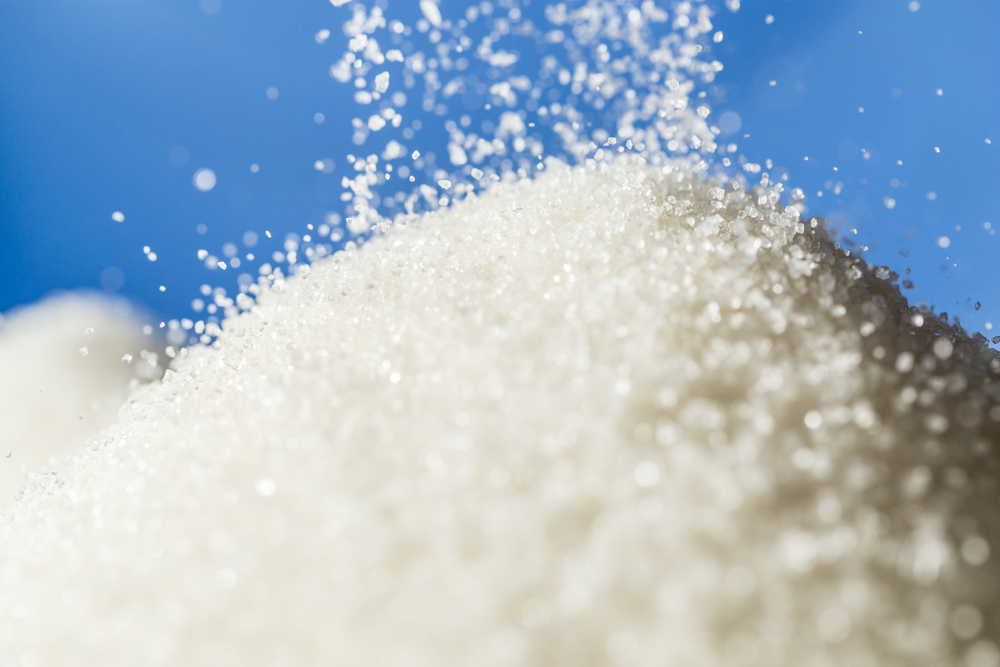The New Disease Culprits:
Refined Sugar and High Fructose Corn Syrup
Guest Post By Lauren Hasz, Healthline Writer
With cases of obesity, cancer, diabetes, and heart disease on the rise, health-conscious individuals and doctors alike seek the causes of our growing battle with these common killers. “Why is it,” many of us ask, “that our great-grandparents escaped the epidemic of cancer while we have friends in their thirties and forties suffering? What has so drastically changed in our world to cause such a widespread outbreak of premature aging and the onset of diseases?”
While it may be true that we are all exposed to more environmental chemicals and toxins than those living in generations past and while it may also be true that our methods of disease detection are better, many researchers would argue that environment and detection alone are not responsible for the alarming increase in metabolic diseases. A growing number of health professionals now indicate that diet, more specifically the consumption of refined sugar and high fructose corn syrup, can be blamed for causing many of these health conditions, specifically those triggered by insulin resistance.
Before we dive into the current research of how diet influences diseases, some definitions related to this topic are appropriate.
First, metabolic syndrome. According to the Mayo Clinic, metabolic syndrome “is a cluster of conditions — increased blood pressure, a high blood sugar level, excess body fat around the waist and abnormal cholesterol levels — that occur together, increasing your risk of heart disease, stroke and diabetes” (Mayo Clinic Staff, 2014).
Second (and linked closely with metabolic syndrome), insulin resistance. Insulin resistance, as explained by the Mayo Clinic, occurs when the body’s cells don’t respond properly to insulin, a hormone produced by the pancreas (Mayo Clinic Staff, 2014). When this happens, glucose – a certain form of sugar – can’t be used as efficiently by the cells for fuel and instead triggers a production of more and more insulin (Mayo Clinic Staff, 2014). Eventually, the build-up of both insulin and glucose in the blood stream leads to various metabolic diseases such as diabetes (Mayo Clinic Staff, 2014).
And, third, refined sugar and high fructose corn syrup. Ah, finally, the potential culprits mentioned previously. Refined sugar and high fructose corn syrup are forms of processed sugar with either a 50/50 ratio of fructose to glucose or a 45/55 ratio respectively. (In contrast, starches like potatoes and rice break down into nearly all glucose molecules.) According to Gary Taubes, author of the New York Times Magazine article “Is Sugar Toxic?” (2011) and an independent investigator in health policy for the Robert Wood Johnson Foundation, the key to many diseases may be found in the detrimental way that the body processes this fructose/glucose molecular ratio.
“We can eat 100 calories of glucose (from a potato or bread or other starch) or 100 calories of sugar (half glucose and half fructose), and they will be metabolized differently and have a different effect on the body,” Taubes explains. “The calories are the same, but the metabolic consequences are quite different” (Taubes, 2011).
Taubes elaborates that fructose is metabolized mainly by the liver, while every cell in the body metabolizes glucose (2011). When too much fructose is consumed over a long period of time, the liver is required to work much harder and may begin to view fructose as a toxin. Taubes notes that a study on lab rats found that consuming high quantities of fructose through substances such as soda resulted in a situation where the liver converted the fructose molecules into fat (2011).
“This apparently induces a condition known as insulin resistance,” Taubes explains, “which is now considered the fundamental problem in obesity, and the underlying defect in heart disease and in the type of diabetes, type 2, that is common to obese and overweight individuals. It might also be the underlying defect in many cancers” (2011).
Katherine Brind’Amour, writing for Healthline.com, reiterates that ineffective insulin metabolism and poor blood sugar levels are at the heart of type 2 diabetes, which usually occurs in individuals after a longer build-up of sugar in the bloodstream (Brind’Amour, 2012). This summary seems to back up the idea that consumption of sugar over a long period of time is triggering metabolic diseases such as type 2 diabetes.
The key question here, then, may not be whether or not refined sugar and high fructose corn syrup are causing disease, but whether or not the average person is consuming high enough quantities to make the question irrelevant. More to the point, has the average diet been so skewed from its intended balance that the consumption of fructose/glucose molecules is now creating a toxic situation, leading to deadly diseases?
Research has not yet established a “deadly” amount of refined sugar and high fructose corn syrup; however, there have been some alarming studies correlating the average diet with metabolic diseases.
Dr. Mark Hyman, a family physician, an eight-time New York Times bestselling author, and an international leader in his field of functional medicine, argues that the current debate about the harmful effects of sugar, specifically high fructose corn syrup, misses the obvious fact that the “average American increased their consumption of HFCS (mostly from sugar sweetened drinks and processed food) from zero to over 60 pounds per person per year. During that time period, obesity rates have more than tripled and diabetes incidence has increased more than seven fold” (2014).
Of particular alarming note is the fact that deadly cancers seem to also be linked to the consumption of too much sugar. President of Memorial Sloan-Kettering Cancer Center in New York, Craig Thompson, explains that many human cancers rely on insulin to grow and multiply in the body (Cited in Taubes, 2011) In his research, Taubes elaborates on Thompson’s findings, noting that “Thompson believes that many pre-cancerous cells would never acquire the mutations that turn them into malignant tumors if they weren’t being driven by insulin to take up more and more blood sugar and metabolize it” (2011).
So, whether or not refined sugars and high fructose corn syrup are the “enemy” in and of themselves, research would seem to indicate that too much too quickly will result in metabolic diseases and long-term health problems. Perhaps best to steer clear and evaluate our diets for these hidden culprits before we overload our bodies and end up with health conditions that limit our productivity and enjoyment of life.
Article Sources:
Brind’Amour, Katherine. (2012). What do you want to know about type 2 diabetes?. Healthline.com. Retrieved from http://www.healthline.com/health/type-2-diabetes.
Hyman, Mark. (2104). 5 reasons high fructose corn syrup will kill you. DrHyman.com. Retrieved from http://drhyman.com/blog/2011/05/13/5-reasons-high-fructose-corn-syrup-will-kill-you/#close.
Mayo Clinic Staff. (2014). Diseases and conditions: metabolic syndrome. Mayo Clinic. Retrieved from http://www.mayoclinic.org/diseases-conditions/metabolic-syndrome/basics/causes/con-20027243.
Taubes, Gary. (2011). Is sugar toxic?. New York Times Magazine. Retrieved from http://www.nytimes.com/2011/04/17/magazine/mag-17Sugar-t.html?pagewanted=all&_r=1&.
Author Bio:
Lauren Hasz lives with her husband of nearly eight years and baby girl in Colorado where she pursues her interests as a writer, doula, teacher, runner, and all-manner of coffee and tea drinker. While known for her “flights of fancy” when the creative mood strikes her, she also enjoys researching and teaching when she is not playing with her daughter or enjoying time with her husband. Follow her story at http://acupofbliss.wordpress.com.
Visited 6 times, 1 visit(s) today



Informative post, Really giving much information, that we want thanks for sharing.
I have limited most sugars from our home- we use real sugar sometimes, but I try to limit the fake stuff as much as possible.